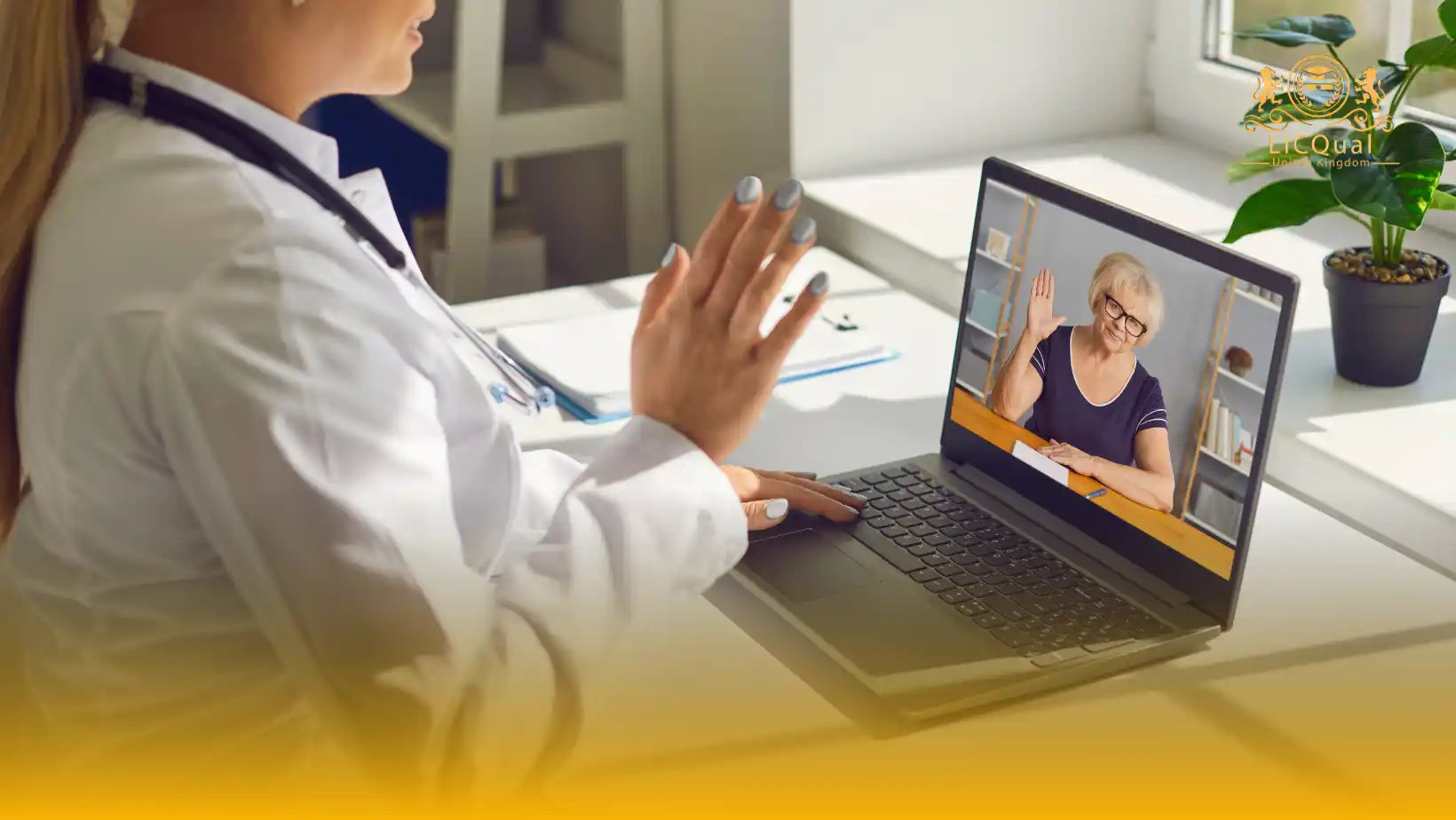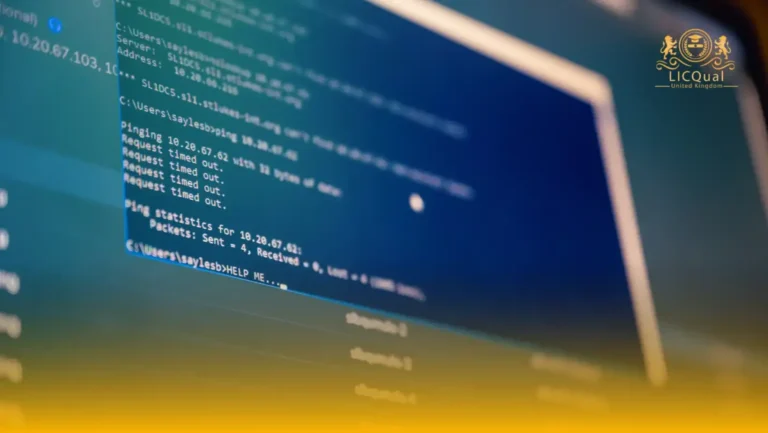The LICQual Level 6 Diploma in Telehealth and Remote Healthcare Management is a highly specialised qualification designed for experienced healthcare professionals seeking to advance their expertise in the growing field of telehealth and remote care delivery. This qualification is not intended for fresh entrants; it is tailored for professionals who aim to expand their knowledge, enhance their career prospects, and strengthen their Continuing Professional Development (CPD).
Learners will gain comprehensive insights into managing and delivering high-quality telehealth services, including virtual consultations, remote patient monitoring, digital health technologies, and the integration of telehealth systems within healthcare organisations. The course equips learners with the skills to develop strategies for effective remote healthcare management, ensure compliance with regulatory standards, and improve patient outcomes through innovative digital solutions.
Centres delivering the LICQual Level 6 Diploma in Telehealth and Remote Healthcare Management must maintain the highest standards of training. This includes employing competent and qualified staff, providing up-to-date learning materials, and ensuring access to the necessary digital tools and resources. These measures ensure learners receive practical guidance, theoretical knowledge, and a supportive learning environment to succeed in this advanced healthcare qualification.
Ideal for healthcare managers, digital health coordinators, and professionals involved in remote care delivery, this diploma empowers learners to lead telehealth initiatives, drive innovation, and implement best practices in remote healthcare management. By completing this qualification, learners will be well-prepared to manage complex telehealth projects, enhance organisational efficiency, and contribute to the advancement of digital healthcare services.
Course Overview
Qualification Title
LICQual Level 6 Diploma in Telehealth and Remote Healthcare Management
Total Units
6
Total Credits
120
GLH
480
Qualification #
LICQ2200779
Qualification Specification
To enroll in the LICQual Level 6 Diploma in Telehealth and Remote Healthcare Management , applicants must meet the following criteria:
|
Qualification# |
Unit Title |
Credits |
GLH |
|---|---|---|---|
|
LICQ2200779-1 |
Principles of Telehealth and Remote Healthcare |
20 |
80 |
|
LICQ2200779-2 |
Strategic Planning and Implementation in Remote Healthcare |
20 |
80 |
|
LICQ2200779-3 |
Digital Health Technology and Data Management |
20 |
80 |
|
LICQ2200779-4 |
Risk, Quality, and Compliance in Telehealth |
20 |
80 |
|
LICQ2200779-5 |
Leadership and Stakeholder Management in Remote Healthcare |
20 |
80 |
|
LICQ2200779-6 |
Project Evaluation and Innovation in Telehealth Services |
20 |
80 |
By the end of this course, learners will be able to:
Unit 1: Principles of Telehealth and Remote Healthcare
- Understand the fundamental principles and frameworks of telehealth and remote healthcare management.
- Analyse the evolution, benefits, and challenges of digital health technologies.
- Evaluate global trends and international standards in telehealth.
- Apply telehealth models effectively within healthcare organisations.
Unit 2: Strategic Planning and Implementation in Remote Healthcare
- Develop strategic plans for telehealth services aligned with organisational objectives.
- Allocate human, technological, and financial resources efficiently.
- Implement telehealth programmes using best practices and recognised frameworks.
- Monitor and evaluate strategic objectives and performance indicators to ensure project success.
Unit 3: Digital Health Technology and Data Management
- Understand the role of digital health technologies, software, and platforms in remote care.
- Apply data management principles, including collection, storage, and analysis, in telehealth.
- Ensure compliance with data protection, privacy, and cybersecurity regulations.
- Assess the effectiveness of digital health solutions in improving patient care and outcomes.
Unit 4: Risk, Quality, and Compliance in Telehealth
- Identify and assess potential risks in telehealth projects and develop mitigation strategies.
- Apply quality assurance and continuous improvement practices in remote healthcare delivery.
- Demonstrate understanding of regulatory, legal, and ethical standards in telehealth.
- Implement monitoring and reporting systems to manage risk and maintain quality.
Unit 5: Leadership and Stakeholder Management in Remote Healthcare
- Develop leadership skills to manage telehealth teams and projects effectively.
- Analyse stakeholder engagement and communication strategies for remote healthcare initiatives.
- Promote collaborative team working and apply conflict resolution techniques.
- Monitor team performance and implement motivational and improvement strategies.
Unit 6: Project Evaluation and Innovation in Telehealth Services
- Conduct evaluations of telehealth projects against objectives, KPIs, and success criteria.
- Analyse project outcomes to identify lessons learned and best practices.
- Develop strategies for continuous improvement and innovation in remote healthcare services.
- Apply evaluation insights to optimise the planning and delivery of future telehealth projects.
This advanced qualification is designed for experienced healthcare professionals seeking to enhance their expertise in telehealth and remote healthcare delivery. The course is ideal for:
- Healthcare managers and senior staff responsible for implementing digital health initiatives.
- Telehealth coordinators and project leads managing remote healthcare programmes.
- Professionals aspiring to leadership or executive roles in hospitals, clinics, or healthcare organisations.
- Individuals involved in strategic decision-making, resource allocation, and operational management of telehealth services.
- Experienced healthcare practitioners looking to strengthen their Continuing Professional Development (CPD) in digital healthcare.
- Professionals aiming to improve patient care and organisational efficiency through remote healthcare solutions.
- Those seeking to develop skills in digital health technologies, risk management, and compliance in telehealth projects.
By enrolling in this diploma, learners will gain the knowledge, skills, and credentials needed to manage telehealth services effectively, lead digital healthcare projects, and drive innovation in remote healthcare delivery.
To deliver the LICQual Level 6 Diploma in Telehealth and Remote Healthcare Management effectively, centres must meet the highest standards of training, resources, and learner support. Key requirements include:
- Qualified and Competent Staff: Tutors and assessors must hold relevant qualifications in healthcare, telehealth, or project management and have practical experience in digital health services.
- Comprehensive Learning Materials: Centres must provide learners with up-to-date course materials, guides, case studies, and access to telehealth platforms and software tools.
- Access to Technology and Resources: Learners should have access to computers, reliable internet, digital health tools, telehealth software, and other resources required to complete practical activities.
- Safe and Supportive Learning Environment: Centres should offer classrooms, study areas, or virtual learning platforms that promote collaboration, engagement, and effective learning.
- Assessment and Quality Assurance Procedures: Centres must implement robust assessment systems, including formative and summative assessments, feedback mechanisms, and monitoring of learner progress.
- Commitment to Continuing Professional Development (CPD): Staff must regularly update their knowledge and skills in telehealth and remote healthcare management to ensure high-quality course delivery.
- Compliance with Regulatory Standards: Centres must adhere to all relevant local and national regulations and maintain accurate records of learner progress, assessment outcomes, and qualifications awarded.
By meeting these requirements, centres can provide learners with a high-quality learning experience, ensuring they acquire the practical skills, theoretical knowledge, and confidence needed to succeed in advanced telehealth and remote healthcare management roles.
Assessment and Verification
All units within this qualification are subject to internal assessment by the approved centre and external verification by LICQual. The qualification follows a criterion-referenced assessment approach, ensuring that learners meet all specified learning outcomes.
To achieve a ‘Pass’ in any unit, learners must provide valid, sufficient, and authentic evidence demonstrating their attainment of all learning outcomes and compliance with the prescribed assessment criteria. The Assessor is responsible for evaluating the evidence and determining whether the learner has successfully met the required standards.
Assessors must maintain a clear and comprehensive audit trail, documenting the basis for their assessment decisions to ensure transparency, consistency, and compliance with quality assurance requirements.







